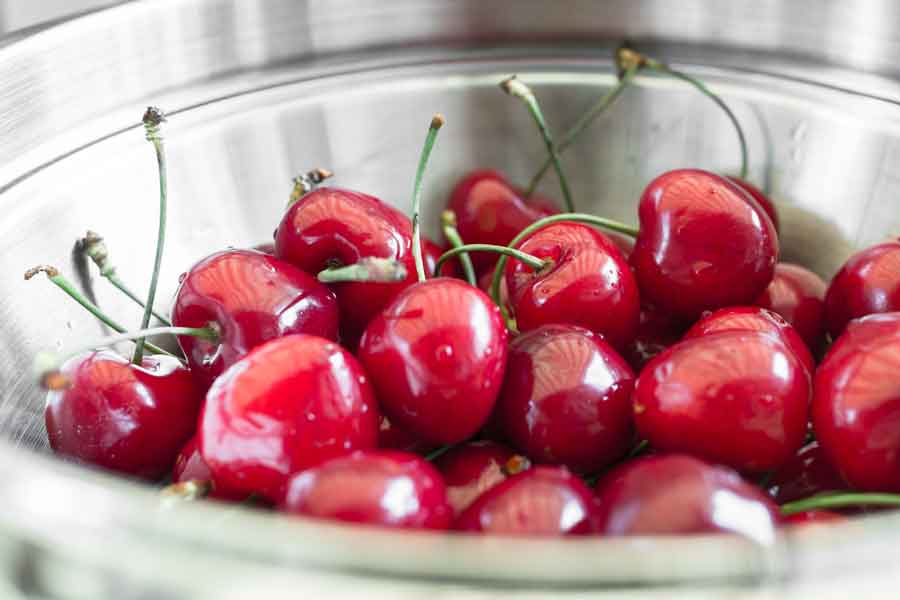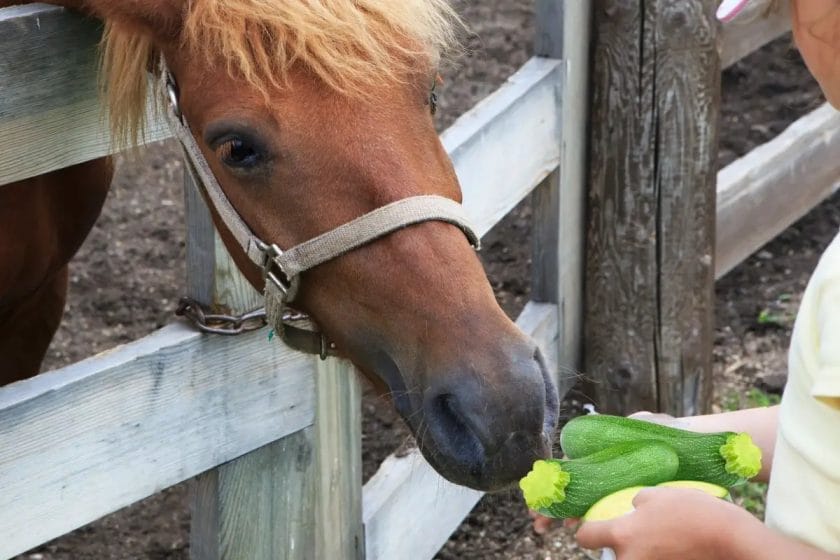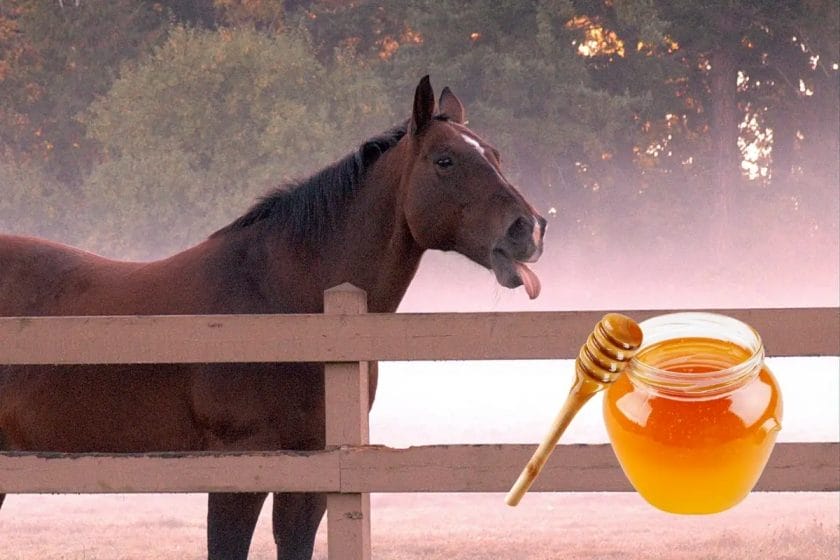Are you wondering if horses can eat cherries? While cherries may be a tempting treat for humans, it’s important to consider the impact on our equine friends. Cherries can pose a potential health risk to horses due to their pits and high sugar content. Ingesting cherry pits can lead to choking or gastrointestinal blockages. Additionally, the high sugar content in cherries can disrupt a horse’s delicate digestive system. It’s always best to consult with a veterinarian before introducing any new foods into your horse’s diet.

Potential Health Risks of Feeding Cherries to Horses
While cherries are a delicious and nutritious fruit for humans, it’s important to note that feeding cherries to horses can pose potential health risks. Although horses may enjoy the taste of cherries, there are several reasons why they should not be a regular part of their diet. Let’s explore some of the potential health risks associated with feeding cherries to horses.
Cyanide Poisoning
One of the primary concerns when it comes to feeding cherries to horses is the risk of cyanide poisoning. Cherries contain cyanide compounds in their seeds and pits, which can be toxic to horses when consumed in large quantities. While horses are generally smart enough to avoid consuming the pits, accidents can happen, especially if the cherries are mixed with other feed or treats.
If a horse accidentally ingests cherry pits, the cyanide compounds can interfere with the body’s ability to transport oxygen, leading to symptoms such as difficulty breathing, weakness, and even death in severe cases. It’s important to ensure that horses do not have access to cherry pits and that any cherry treats or feed provided are free from pits.
Gastrointestinal Upset
Feeding cherries to horses can also cause gastrointestinal upset. Horses have sensitive digestive systems, and introducing new or unfamiliar foods can disrupt their gut flora and lead to issues such as colic and diarrhea. Cherries, particularly in large quantities, can cause digestive disturbances and discomfort in horses.
If a horse consumes a large amount of cherries, they may also experience bloating, gas, and discomfort. It’s essential to introduce new foods slowly and monitor the horse’s reaction closely. If any signs of gastrointestinal upset are observed, it’s best to discontinue feeding cherries immediately.
Obesity and Sugar Content
Another concern when it comes to feeding cherries to horses is their high sugar content. Cherries are naturally sweet and contain fructose, which can contribute to weight gain and obesity in horses if consumed in excess. Horses that are prone to metabolic disorders such as insulin resistance or equine metabolic syndrome should avoid high-sugar foods like cherries.
Feeding cherries as an occasional treat in moderation may not pose significant health risks to healthy horses. However, it’s crucial to consider the overall sugar intake of the horse’s diet and ensure that cherries are not a primary or excessive source of sugar.
Allergy or Sensitivity Reactions
Some horses may be allergic or have sensitivities to cherries. Just like humans, horses can develop allergies to certain foods, including fruits like cherries. Signs of an allergic reaction may include hives, itching, swelling, or difficulty breathing.
If a horse exhibits any signs of an allergic or sensitivity reaction after consuming cherries, it’s important to consult a veterinarian immediately. They can provide guidance on how to manage the allergy and prevent further exposure to the allergen.
In Summary
While cherries may seem like a tasty treat to share with your horse, it’s important to be aware of the potential health risks associated with feeding cherries to horses. Cyanide poisoning from cherry pits, gastrointestinal upset, obesity and sugar content, and allergic reactions are all concerns to consider.
If you’re ever unsure about what foods are safe and suitable for your horse, it’s best to consult with a veterinarian or equine nutritionist. They can provide expert advice tailored to your horse’s specific dietary needs, ensuring their health and well-being.

Alternative Fruits for Horses to Enjoy
Feeding horses a balanced and nutritious diet is essential for their overall health and well-being. While hay and grains provide the foundation of a horse’s diet, offering fruits as occasional treats can be a great way to add variety and flavor to their meals. Not all fruits are safe for horses to consume, as some may be toxic or cause digestive issues. However, there are several alternative fruits that horses can safely enjoy. Let’s explore some of these options below:
1. Apples
Apples are a popular and widely available fruit that horses tend to enjoy. They are a good source of fiber and contain essential vitamins such as vitamin C. It’s important to remove the seeds and core before feeding apples to horses, as they can be a choking hazard. Cutting the apples into smaller, bite-sized pieces makes them easier for horses to eat and digest.
2. Carrots
Carrots are another favorite treat for horses. They are low in sugar and high in fiber, making them a healthy snack option. Carrots also provide essential nutrients like beta-carotene, which is beneficial for a horse’s immune system and overall eye health. It’s best to feed carrots in moderation, as excessive consumption can lead to weight gain.
3. Bananas
While not as commonly fed to horses as apples or carrots, bananas can be a tasty and nutritious treat. Bananas are a good source of potassium, which aids in maintaining proper muscle function. They are also rich in vitamins and minerals, including vitamin C and vitamin B6. It’s important to peel and slice the bananas before offering them to horses.
4. Watermelon
Watermelon is a refreshing fruit that can be a great summertime treat for horses. It is high in water content and can help hydrate your horse on hot days. Watermelon also contains vitamins A and C, as well as antioxidants. Make sure to remove any seeds and cut the watermelon into manageable pieces before offering it to your horse.
5. Oranges
Oranges are a citrus fruit that some horses may enjoy. They are a good source of vitamin C, which is important for immune system support. It’s best to remove the peel and separate the orange into smaller segments before feeding it to horses. Some horses may not prefer the strong citrus taste, so it’s important to introduce oranges gradually and observe their reaction.
6. Berries
Various types of berries, such as strawberries, blueberries, and raspberries, can be a delicious treat for horses. Berries are rich in antioxidants and provide essential vitamins and minerals. However, it’s important to feed berries in moderation due to their natural sugar content. Wash the berries thoroughly and cut them into smaller pieces before offering them to your horse.
7. Pears
Pears are a juicy and flavorful fruit that can be given to horses as an occasional treat. They are a good source of dietary fiber and provide vitamins such as vitamin C and vitamin K. Make sure to remove the seeds and core before feeding pears to horses. Slicing the pears into smaller chunks will make it easier for horses to eat.
In summary, while horses primarily require a diet consisting of hay and grains, offering alternative fruits as treats can be a great way to add variety and nutrition. Apples, carrots, bananas, watermelon, oranges, berries, and pears are some safe and enjoyable options for horses. Remember to feed fruits in moderation and adjust your horse’s diet accordingly to maintain a balanced nutrition plan.

Tips for Introducing New Foods to Your Horse’s Diet
When it comes to introducing new foods to your horse’s diet, it’s important to do so gradually and with caution. Abrupt changes can upset your horse’s digestion and lead to health issues. Here are some tips to help you introduce new foods to your horse’s diet successfully:
1. Start with Small Amounts
Begin by introducing small amounts of the new food to your horse’s diet. This allows their digestive system to gradually adapt to the change. Start with just a handful or a few bites and monitor your horse’s reaction.
2. Mix with Familiar Food
One way to ease your horse into accepting new foods is to mix them with familiar foods that they already enjoy. This helps mask the taste and texture of the new food, making it more appealing to your horse.
3. Slowly Increase the Quantity
Once your horse shows no signs of digestive upset or adverse reactions, gradually increase the quantity of the new food over a period of several days or weeks. This allows your horse’s digestive system to adjust at a comfortable pace.
4. Monitor Your Horse’s Health
Keep a close eye on your horse’s health and behavior during the introduction of new foods. Look for any signs of distress, such as colic, diarrhea, or loss of appetite. If you notice any concerning symptoms, consult with your veterinarian.
5. Consider Nutritional Balance
Before adding new foods to your horse’s diet, consider their nutritional balance and consult with a equine nutritionist or veterinarian. It’s important to ensure that your horse is receiving all the necessary nutrients in their diet.
6. Gradually Replace Old Food
If you plan to replace a current food with a new one, do so gradually by mixing increasing portions of the new food with decreasing portions of the old food. This helps your horse adjust to the new taste and texture without causing digestive upset.
7. Be Patient
Introducing new foods to your horse’s diet requires patience. Every horse is different, and some may take longer to accept new foods than others. Give your horse time to adjust and provide positive reinforcement when they show willingness to try new foods.
8. Keep a Record
Keep a record of the new foods you introduce to your horse’s diet, along with any observations or reactions. This can help you identify any patterns or sensitivities and make informed decisions about their diet in the future.
By following these tips and taking a gradual approach, you can safely introduce new foods to your horse’s diet and ensure their overall health and well-being.
Understanding the nutritional needs of horses and how cherries fit in
Horses, like humans and other animals, have specific nutritional requirements to maintain optimal health and performance. Providing a balanced and nutritious diet is essential for the overall well-being of these magnificent creatures. In this section, we will delve into the nutritional needs of horses and explore the role cherries can play in their diet.
1. The basics of equine nutrition
Horses are herbivores and have a unique digestive system designed to process plant-based diets. They require a combination of macronutrients, micronutrients, and water to meet their nutritional needs.
Macronutrients:
- Protein: Horses need high-quality protein to support muscle development, tissue repair, and overall growth. Good sources of protein include legumes, such as alfalfa.
- Carbohydrates: Carbohydrates provide horses with the energy they need for physical activity. This can come from forage (hay and grass) as well as grains like oats.
- Fats: Healthy fats are an important source of concentrated energy for horses. They also aid in nutrient absorption. Common fat sources for horses include vegetable oils.
Micronutrients:
- Vitamins: Horses require a variety of vitamins, including A, D, E, and B-complex vitamins. These vitamins play a crucial role in various bodily functions, such as immune system function and bone health.
- Minerals: Essential minerals include calcium, phosphorus, potassium, and magnesium. These minerals are vital for maintaining proper muscle function, electrolyte balance, and bone strength.
Water:
Water is perhaps the most critical nutrient for horses. Adequate hydration is essential for digestion, temperature regulation, and overall health. Horses should have access to fresh, clean water at all times.
2. The benefits of cherries for horses
Cherries are a delicious and nutritious fruit that can be a beneficial addition to a horse’s diet when fed in moderation. They offer several potential benefits:
- Antioxidant properties: Cherries are rich in antioxidants, such as anthocyanins and vitamin C. These antioxidants help neutralize harmful free radicals in the body, reducing the risk of oxidative stress and inflammation.
- Vitamin content: Cherries are a good source of vitamins A and C, which are important for immune function and overall health.
- Hydration and fiber: Cherries have a high water content, contributing to hydration in horses. They also provide dietary fiber, supporting proper gut function and digestion.
- Palatability: Many horses enjoy the taste of cherries, making them a great choice for use as a low-calorie treat or as a flavor enhancer for feeds or supplements.
However, it’s important to note that cherries should always be fed in moderation and as part of a balanced diet. Too many cherries or any other fruit can disrupt the nutrient balance and lead to digestive issues in horses.
3. Incorporating cherries into a horse’s diet
When introducing cherries into a horse’s diet, it’s crucial to follow these guidelines:
- Start with small amounts: Begin by offering a few cherries as a treat and observe your horse’s reaction. If there are no adverse effects, you can gradually increase the quantity.
- Pit removal: Remove the pits from cherries before feeding them to your horse. The pits contain cyanide, which is toxic to horses.
- Moderation is key: Cherries should only be fed as an occasional treat, rather than a staple food. Limit the amount to a handful of cherries per feeding.
- Consult with a veterinarian: If you have any concerns or questions about incorporating cherries into your horse’s diet, it’s always best to consult with a veterinarian who can provide tailored advice based on your horse’s specific needs and health condition.
In summary, understanding the nutritional needs of horses is essential for their overall well-being. Cherries can be a nutritious addition to their diet, offering antioxidant properties, vitamins, hydration, and palatability. However
FAQs
Can horses eat cherries?
No, horses should not eat cherries. The stems, leaves, and pits of cherries contain cyanide, which is toxic to horses. Feeding cherries to horses can lead to serious health issues and even be fatal. It is best to avoid giving cherries to horses and stick to their regular diet.
Conclusion
In conclusion, while cherries may seem like a tempting treat for horses, it is important to remember that they should not be a regular part of their diet. Although horses can eat cherries in moderation, the pits and stems pose a risk of choking or causing intestinal blockages. Additionally, cherries are high in sugar content, which can lead to weight gain and potential health issues such as laminitis. It is always best to consult with a veterinarian before introducing any new foods to your horse’s diet to ensure their well-being and digestive health.
Instead of cherries, focus on providing your horse with a balanced diet consisting of quality hay, fresh water, and appropriate horse feed. This will ensure they receive the necessary nutrients and maintain their overall health. Remember, the health and well-being of your horse should always be the top priority.
